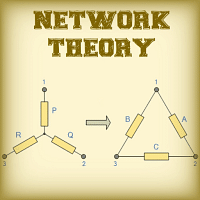Electrical Engineering (EE) Exam > Electrical Engineering (EE) Questions > In case of controlled rectifiers, the nature ...
Start Learning for Free
In case of controlled rectifiers, the nature of the load current (continues or discontinuous) depends upon the
- a)type of load and firing angle
- b)only on the type of load
- c)only on the firing angle
- d)it is independent of all the parameters
Correct answer is option 'A'. Can you explain this answer?
| FREE This question is part of | Download PDF Attempt this Test |
Verified Answer
In case of controlled rectifiers, the nature of the load current (cont...
It depends on both as firing angle will decide how fast and how much current flows. The load R, Rl or RLE can also effect the current depending upon the values of L and E.
Most Upvoted Answer
In case of controlled rectifiers, the nature of the load current (cont...
Nature of Load Current in Controlled Rectifiers
Type of Load and Firing Angle
The nature of load current in controlled rectifiers depends on two parameters: the type of load and the firing angle.
Continuous or Discontinuous
The load current can be either continuous or discontinuous depending on the above-mentioned parameters.
Continuous Current
When the load is resistive or inductive and the firing angle is less than 90 degrees, the load current is continuous.
Discontinuous Current
When the load is capacitive or the firing angle is greater than 90 degrees, the load current is discontinuous.
Explanation
The reason behind this behavior lies in the basic principle of controlled rectifiers. Controlled rectifiers use thyristors as switching devices to control the flow of current from the AC source to the load.
When the thyristor is turned on, the current flows through the load. When it is turned off, the current stops flowing. This switching phenomenon creates a ripple in the load current.
In the case of a resistive or inductive load, the current flows continuously even when the thyristor is turned off. Hence, the load current is continuous.
In the case of a capacitive load or when the firing angle is greater than 90 degrees, the current flows only when the thyristor is turned on. Hence, the load current is discontinuous.
Conclusion
In conclusion, the nature of the load current in controlled rectifiers depends on the type of load and the firing angle. The load current can be either continuous or discontinuous depending on these parameters.
Type of Load and Firing Angle
The nature of load current in controlled rectifiers depends on two parameters: the type of load and the firing angle.
Continuous or Discontinuous
The load current can be either continuous or discontinuous depending on the above-mentioned parameters.
Continuous Current
When the load is resistive or inductive and the firing angle is less than 90 degrees, the load current is continuous.
Discontinuous Current
When the load is capacitive or the firing angle is greater than 90 degrees, the load current is discontinuous.
Explanation
The reason behind this behavior lies in the basic principle of controlled rectifiers. Controlled rectifiers use thyristors as switching devices to control the flow of current from the AC source to the load.
When the thyristor is turned on, the current flows through the load. When it is turned off, the current stops flowing. This switching phenomenon creates a ripple in the load current.
In the case of a resistive or inductive load, the current flows continuously even when the thyristor is turned off. Hence, the load current is continuous.
In the case of a capacitive load or when the firing angle is greater than 90 degrees, the current flows only when the thyristor is turned on. Hence, the load current is discontinuous.
Conclusion
In conclusion, the nature of the load current in controlled rectifiers depends on the type of load and the firing angle. The load current can be either continuous or discontinuous depending on these parameters.
Attention Electrical Engineering (EE) Students!
To make sure you are not studying endlessly, EduRev has designed Electrical Engineering (EE) study material, with Structured Courses, Videos, & Test Series. Plus get personalized analysis, doubt solving and improvement plans to achieve a great score in Electrical Engineering (EE).

|
Explore Courses for Electrical Engineering (EE) exam
|

|
Similar Electrical Engineering (EE) Doubts
In case of controlled rectifiers, the nature of the load current (continues or discontinuous) depends upon thea)type of load and firing angleb)only on the type of loadc)only on the firing angled)it is independent of all the parametersCorrect answer is option 'A'. Can you explain this answer?
Question Description
In case of controlled rectifiers, the nature of the load current (continues or discontinuous) depends upon thea)type of load and firing angleb)only on the type of loadc)only on the firing angled)it is independent of all the parametersCorrect answer is option 'A'. Can you explain this answer? for Electrical Engineering (EE) 2024 is part of Electrical Engineering (EE) preparation. The Question and answers have been prepared according to the Electrical Engineering (EE) exam syllabus. Information about In case of controlled rectifiers, the nature of the load current (continues or discontinuous) depends upon thea)type of load and firing angleb)only on the type of loadc)only on the firing angled)it is independent of all the parametersCorrect answer is option 'A'. Can you explain this answer? covers all topics & solutions for Electrical Engineering (EE) 2024 Exam. Find important definitions, questions, meanings, examples, exercises and tests below for In case of controlled rectifiers, the nature of the load current (continues or discontinuous) depends upon thea)type of load and firing angleb)only on the type of loadc)only on the firing angled)it is independent of all the parametersCorrect answer is option 'A'. Can you explain this answer?.
In case of controlled rectifiers, the nature of the load current (continues or discontinuous) depends upon thea)type of load and firing angleb)only on the type of loadc)only on the firing angled)it is independent of all the parametersCorrect answer is option 'A'. Can you explain this answer? for Electrical Engineering (EE) 2024 is part of Electrical Engineering (EE) preparation. The Question and answers have been prepared according to the Electrical Engineering (EE) exam syllabus. Information about In case of controlled rectifiers, the nature of the load current (continues or discontinuous) depends upon thea)type of load and firing angleb)only on the type of loadc)only on the firing angled)it is independent of all the parametersCorrect answer is option 'A'. Can you explain this answer? covers all topics & solutions for Electrical Engineering (EE) 2024 Exam. Find important definitions, questions, meanings, examples, exercises and tests below for In case of controlled rectifiers, the nature of the load current (continues or discontinuous) depends upon thea)type of load and firing angleb)only on the type of loadc)only on the firing angled)it is independent of all the parametersCorrect answer is option 'A'. Can you explain this answer?.
Solutions for In case of controlled rectifiers, the nature of the load current (continues or discontinuous) depends upon thea)type of load and firing angleb)only on the type of loadc)only on the firing angled)it is independent of all the parametersCorrect answer is option 'A'. Can you explain this answer? in English & in Hindi are available as part of our courses for Electrical Engineering (EE).
Download more important topics, notes, lectures and mock test series for Electrical Engineering (EE) Exam by signing up for free.
Here you can find the meaning of In case of controlled rectifiers, the nature of the load current (continues or discontinuous) depends upon thea)type of load and firing angleb)only on the type of loadc)only on the firing angled)it is independent of all the parametersCorrect answer is option 'A'. Can you explain this answer? defined & explained in the simplest way possible. Besides giving the explanation of
In case of controlled rectifiers, the nature of the load current (continues or discontinuous) depends upon thea)type of load and firing angleb)only on the type of loadc)only on the firing angled)it is independent of all the parametersCorrect answer is option 'A'. Can you explain this answer?, a detailed solution for In case of controlled rectifiers, the nature of the load current (continues or discontinuous) depends upon thea)type of load and firing angleb)only on the type of loadc)only on the firing angled)it is independent of all the parametersCorrect answer is option 'A'. Can you explain this answer? has been provided alongside types of In case of controlled rectifiers, the nature of the load current (continues or discontinuous) depends upon thea)type of load and firing angleb)only on the type of loadc)only on the firing angled)it is independent of all the parametersCorrect answer is option 'A'. Can you explain this answer? theory, EduRev gives you an
ample number of questions to practice In case of controlled rectifiers, the nature of the load current (continues or discontinuous) depends upon thea)type of load and firing angleb)only on the type of loadc)only on the firing angled)it is independent of all the parametersCorrect answer is option 'A'. Can you explain this answer? tests, examples and also practice Electrical Engineering (EE) tests.

|
Explore Courses for Electrical Engineering (EE) exam
|

|
Suggested Free Tests
Signup for Free!
Signup to see your scores go up within 7 days! Learn & Practice with 1000+ FREE Notes, Videos & Tests.
























